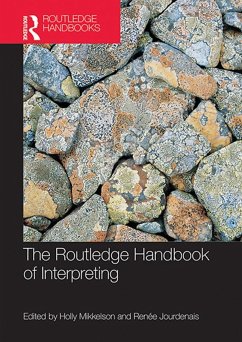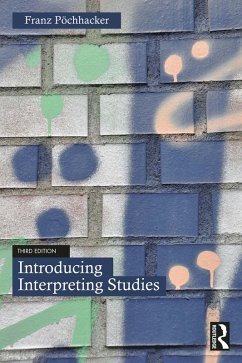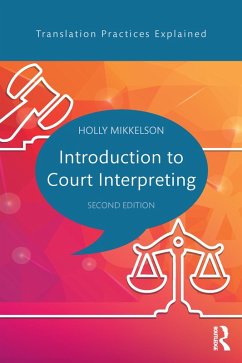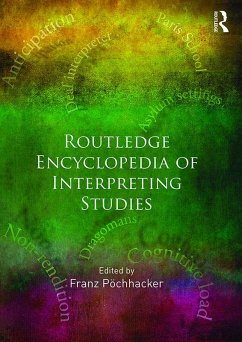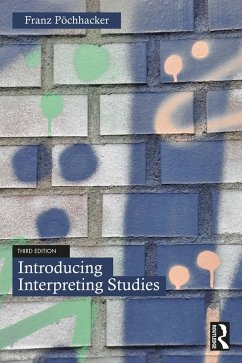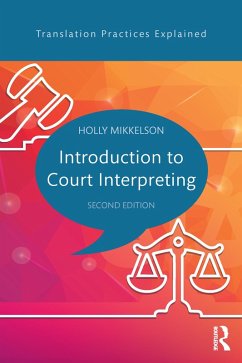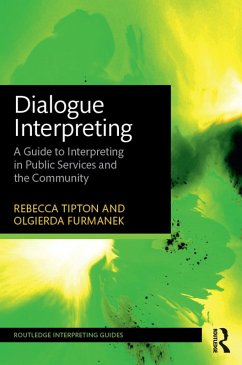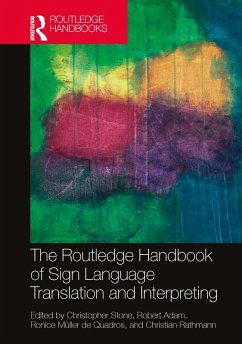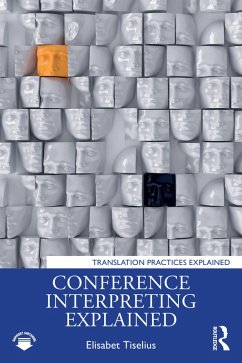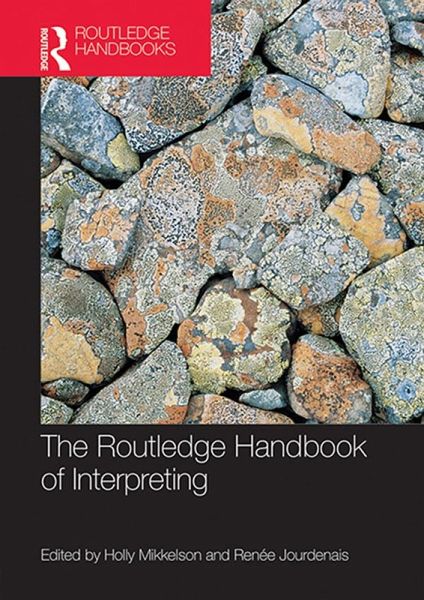
The Routledge Handbook of Interpreting (eBook, ePUB)
Versandkostenfrei!
Sofort per Download lieferbar
51,95 €
inkl. MwSt.
Weitere Ausgaben:

PAYBACK Punkte
26 °P sammeln!
The Routledge Handbook of Interpreting provides a comprehensive survey of the field of interpreting for a global readership. The handbook includes an introduction and four sections with thirty one chapters by leading international contributors.The four sections cover: The history and evolution of the field The core areas of interpreting studies from conference interpreting to interpreting in conflict zones and voiceover Current issues and debates from ethics and the role of the interpreter to the impact of globalization A look to the future Suggestions for further reading are provided wit...
The Routledge Handbook of Interpreting provides a comprehensive survey of the field of interpreting for a global readership. The handbook includes an introduction and four sections with thirty one chapters by leading international contributors.
The four sections cover:
The four sections cover:
- The history and evolution of the field
- The core areas of interpreting studies from conference interpreting to interpreting in conflict zones and voiceover
- Current issues and debates from ethics and the role of the interpreter to the impact of globalization
- A look to the future
Suggestions for further reading are provided with every chapter. The Routledge Handbook of Interpreting is an essential reference for researchers and advanced students of interpreting.
Dieser Download kann aus rechtlichen Gründen nur mit Rechnungsadresse in A, B, BG, CY, CZ, D, DK, EW, E, FIN, F, GR, HR, H, IRL, I, LT, L, LR, M, NL, PL, P, R, S, SLO, SK ausgeliefert werden.




